
Google Updates June 2025: What SEOs, Developers, and Website Owners Need to Know
Another Google update june 2025 is here—and if you are an owner of a site, SEO specialist, developer, or employed in the digital marketing field, it’s bound to affect you.
The main objectives of the Google Search Updates for June 2025 are reinforcing compliance with enforced structured data, monitoring for AI-generated content, and modifications to SafeSearch.
These will impact how your business performs online, be it an e-commerce store, a content-heavy platform, or an organization whose online presence you work to improve.
Let’s make these updates easier to understand so that you can take action.
Revamped URL Structure Documentation (June 18)
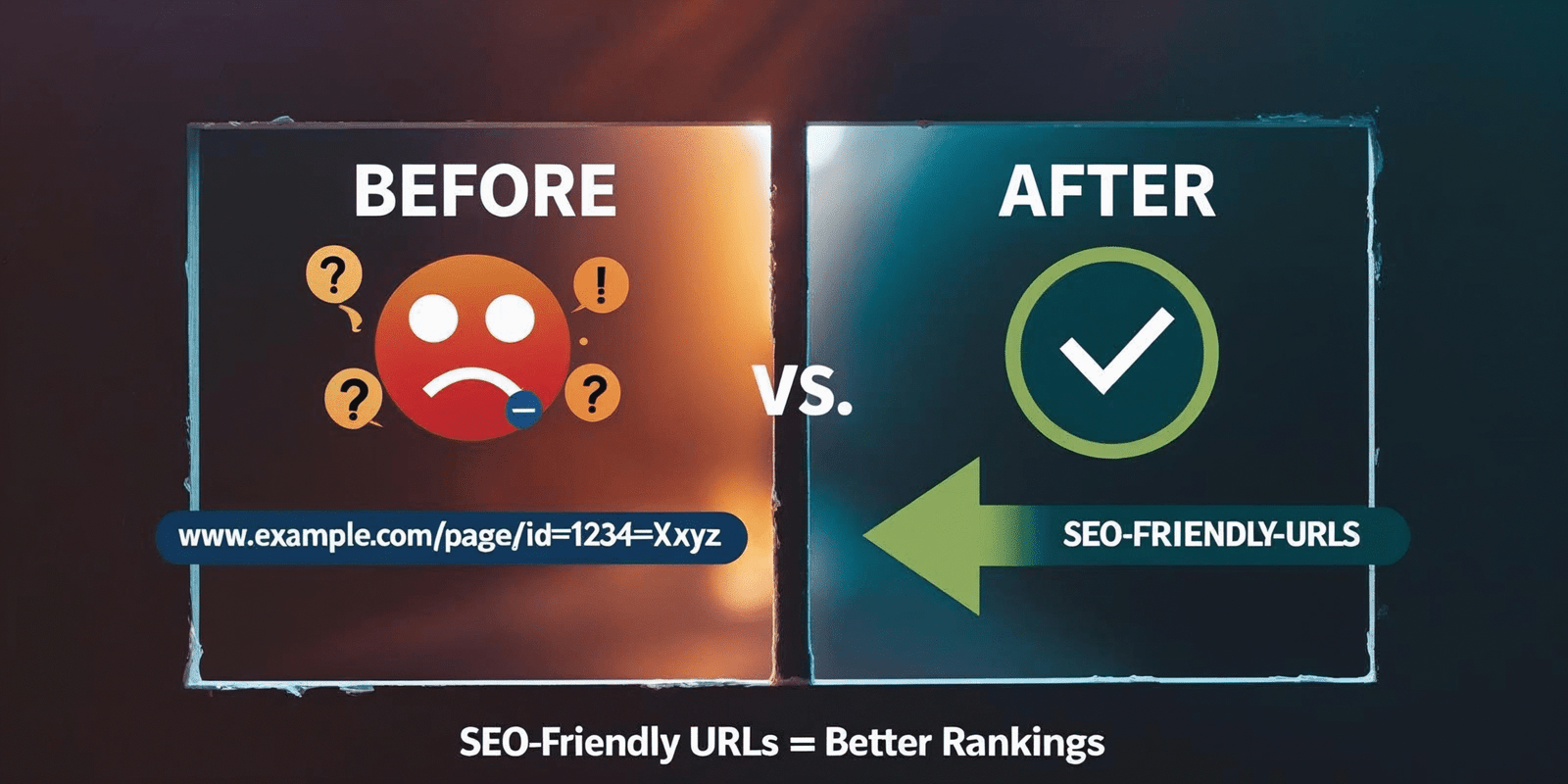
What Changed: Google updated its URL guidelines by providing streamlined documentation with clear links to follow through. Explanations have also been added so that readers can understand how to create SEO-friendly URLs.
Why It Matters: URL structure affects how easily search engines crawl and index your site, which in turn influences your website’s SEO performance. This change helps developers and SEO teams create more optimized link structures following best practices.
Tip from Codeology AI: Remember that URLs should always be short, descriptive, and consistent. This applies to search engines and users.
Feature Availability for Loyalty Program Structured Data (June 17)

What Changed: Google included the information on availability for loyalty program markup.
Where It Works: Active in Australia, Brazil, Canada, France, Germany, Mexico, the UK, the US, and includes both desktop and mobile.
Why It Matters: Structured data marking for enhanced visibility applies to beneficial pay-for-site reward systems structured in these regions.
AI Mode Now Included in Search Console Totals (June 16)
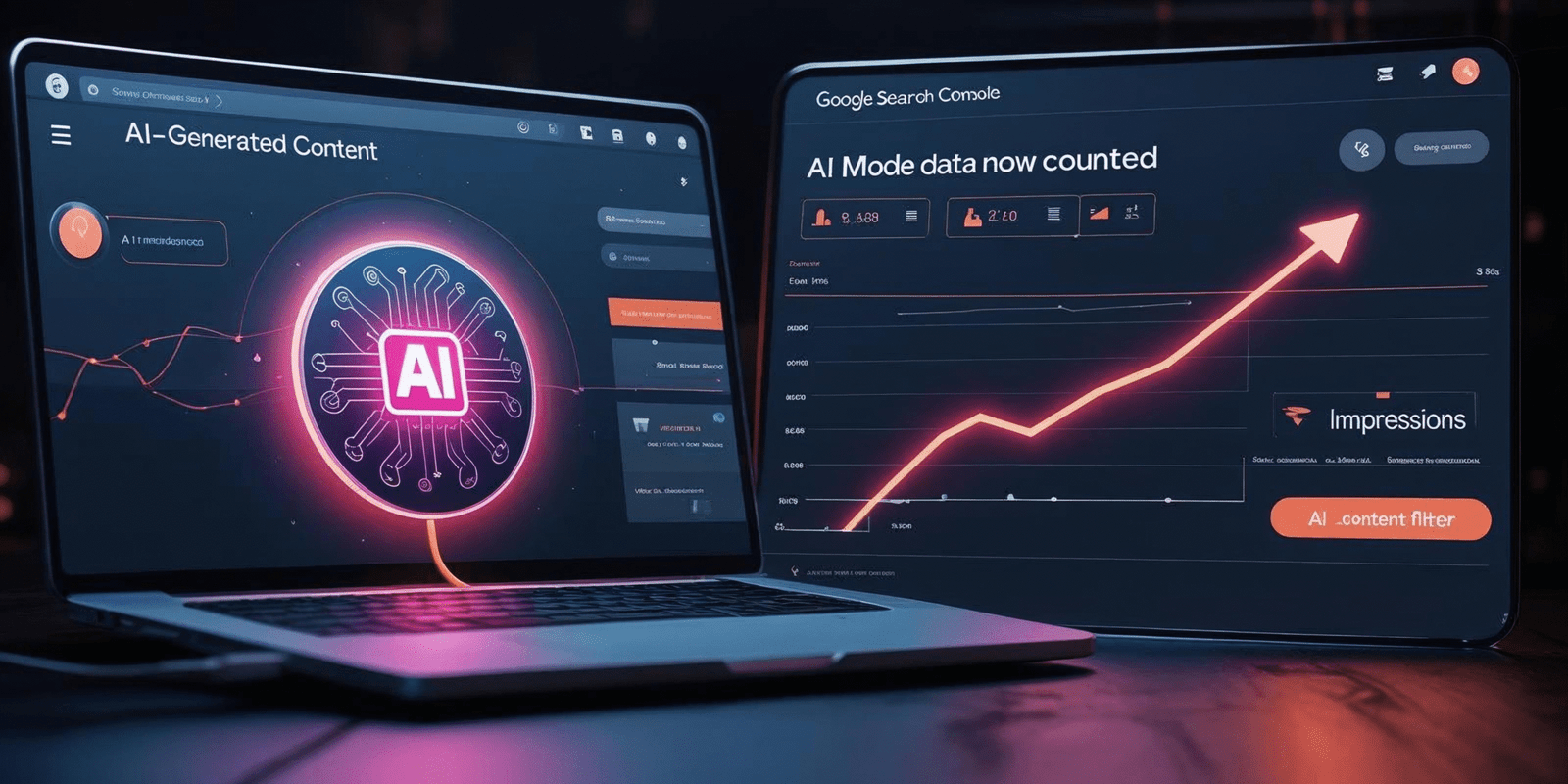
What Changed: Data from AI-generated content is now included in the Search Console Performance Report.
Why It Matters: If you are leveraging AI tools (like ChatGPT) for blog creation or content summaries, those impressions and clicks are now reflected in your total performance. That means you get a more accurate picture of how AI content performs in search.
Smart move: Track your AI Mode traffic separately using filters in Google Search Console.
Structured Data Features Being Retired (June 12)
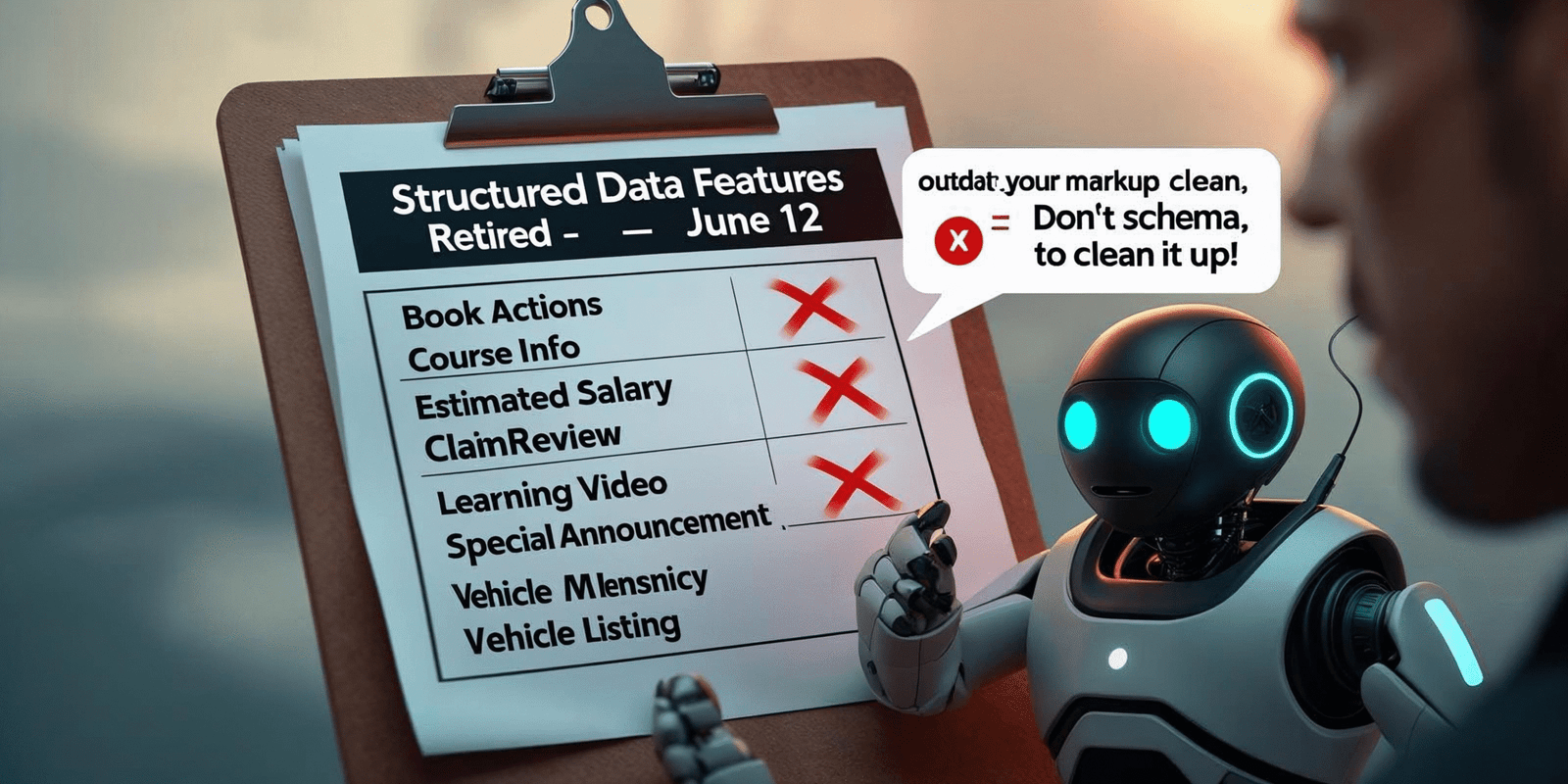
Features Going Away:
- Book actions
- Course info
- Estimated salary
- ClaimReview
- Learning video
- Special announcement
- Vehicle listing
Why It Matters: These structured data types will no longer affect search appearance. If you’re using them, remove or update your schema to avoid clutter and confusion.
Pro Tip from Codeology AI: Keep your site’s schema markup lean and current. Outdated markup won’t just be ignored—it might confuse crawlers.
Multilingual Content & Robots.txt Guidance Update (June 11)
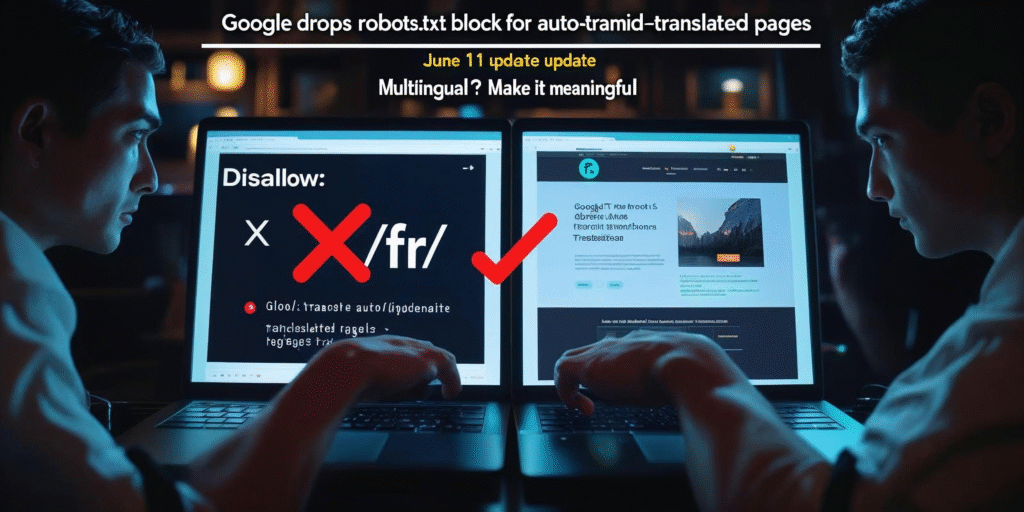
What Changed: Google seems to have removed the recommendation of using robots.txt to block auto-translated pages.
Why It Matters: Straying from anti-spam policies is unlike Google. If content is being auto-translated for international users, it must meet the highest standards and deliver real value. Otherwise, it risks being considered spam.
New Documentation for Merchant Returns & Loyalty Programs (June 10)
What Changed:
- Loyalty program documentation is now separate.
- Merchant return policy docs moved from the “Organization” section to their page.
Why It Matters: If you’re an eCommerce brand, this helps ensure better structured data implementation, so your products are more visible in search results with return info.
Event Structured Data Guidelines Refined (June 5)
What’s New:
- More examples of eligible and ineligible events.
- Online-only events are no longer supported.
Why It Matters: Only public, physical events are eligible for Google’s enhanced event experiences now. Update your markup accordingly.
Clarifying the Use of Image Property in Recipe Structured Data (June 5)
What Changed: Google has clarified that image fields in structured data for recipes do not affect the image displayed in text results; they serve only as a reference for rich results.
For food bloggers and recipe website owners, it is best to optimize images and their descriptions separately for effective SEO results.
SafeSearch Documentation Completely Revamped (June 4)
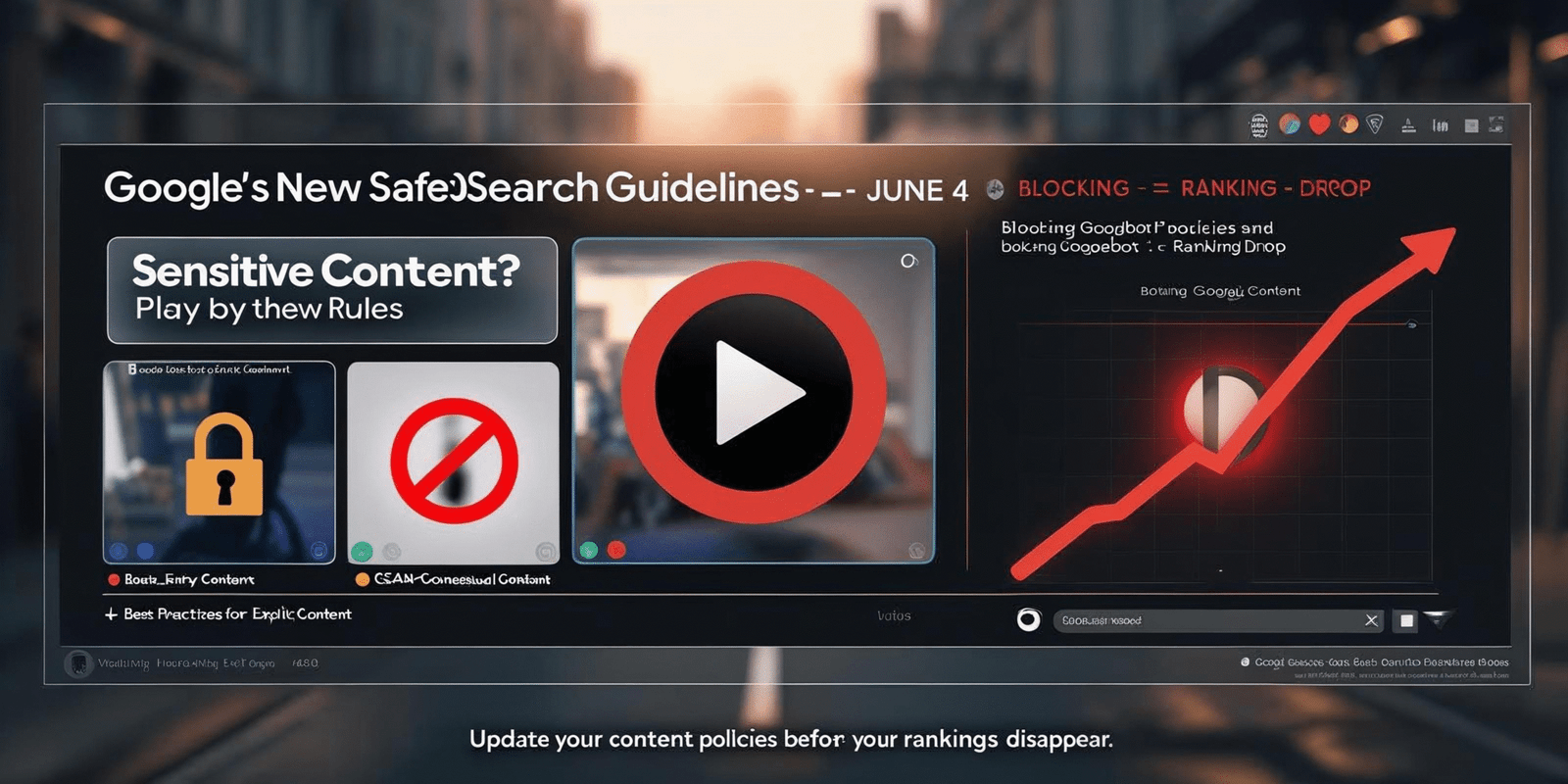
What Changed:
- Best practices added for moderating explicit content
- Guidance on removing non-consensual content and CSAM
- New ranking signals for video-rich sites that block Googlebot
Why It Matters: If your site hosts adult or sensitive content, follow these new guidelines to avoid ranking penalties, especially in Google Video mode.
Heads-up: Sites blocking Googlebot from accessing hosted videos may see a major drop in rankings.
Final Thoughts
June 2025’s updates are a signal from Google — the future of search is smarter, stricter, and schema-first. Whether you’re using AI for content, hosting video, or running a global eCommerce platform, aligning with these updates is critical for your organic success.
At Codeology AI, we help brands adapt to these changes with SEO audits, structured data implementation, and performance tracking, making sure your content stays ahead in Google Search.
FAQs
Q1. What is the most important change from Google’s June 2025 updates?
A: The inclusion of AI Mode traffic in Search Console and the retirement of some structured data types are the biggest highlights. These directly affect how your content is tracked and displayed in Google.
Q2. How can I update my structured data markup according to these changes?
A: Start by auditing your current markup. Remove any deprecated schema (like ClaimReview or Course Info) and update according to the new Google documentation. If unsure, professional help from an SEO expert like Codeology AI can streamline the process.
Q3. Will these updates impact my website ranking?
A: Yes, especially if you’re using outdated or unsupported structured data, or blocking access to videos. Implementing the right schema and following Google’s latest documentation ensures your content remains search-friendly and visible.



